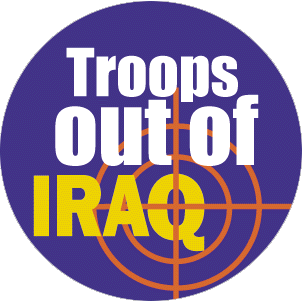Bush: 8,000 troops to leave Iraq by February
 Washington - The United States will withdraw an additional 8,000 troops from Iraq by February, US President George W Bush announced Tuesday, citing a sustained drop in violence that will allow a greater shift of resources to Afghanistan.
Washington - The United States will withdraw an additional 8,000 troops from Iraq by February, US President George W Bush announced Tuesday, citing a sustained drop in violence that will allow a greater shift of resources to Afghanistan.
The pullout will reduce the US presence to about 138,000 soldiers shortly after Bush leaves office in January, leaving the next major pullout decisions to his successor.
Meanwhile, a Marine battalion previously slated to arrive in Iraq in November will instead head to Afghanistan, which has become increasingly violent during the last year, and US and NATO forces seek to counter a resurgent Taliban.
"As we learned in Iraq, the best way to restore the confidence of the people is to restore basic security, and that requires more troops," Bush said, adding that another Army combat brigade will arrive in Afghanistan in January.
Bush attributed the success in Iraq to the more than 20,000 soldiers he ordered into that country in January 2007 to quell rising sectarian violence and bloodshed.
He also credited the buildup of viable Iraqi forces, the political progress made by Prime Minister Nuri al-Maliki's government in Baghdad, and the decision of Iraq's Sunni tribals in al-Anbar province to turn against al-Qaeda.
"While the enemy in Iraq is dangerous, we have seized the offensive - Iraqi forces are becoming increasingly capable of leading and winning the fight," Bush said in an address at the National Defense University in Washington.
General David Petraeus, the top US commander in Iraq, recommended the reduction as violence over the last several months has stayed down and a "degree of durability" had been established, Bush said, but also cautioned the situation in Iraq remained "fragile" and the US must maintain a policy of "return on success."
But Bush's reduction in forces fell well short of demands by Democrats who sought a drop in greater numbers and more quickly.
Democratic presidential hopeful Barak Obama, who has tried to tie Bush's policy to the Republican candidate, John McCain, said the latest move by the White House still fails to set timetables and sends the wrong signal to the Iraqi government.
"In the absence of a timetable to remove our combat brigades, we will continue to give Iraq's leaders a blank cheque instead of pressing them to reconcile their differences," Obama said.
Taliban and al-Qaeda militants in Afghanistan have stepped up attacks on coalition forces and civilians in the country since the spring as violence reached its highest level in years. Bush said the US and NATO allies need to send more troops to Afghanistan because "the security situation changed."
Earlier this summer, the US military cut Iraq combat tours from 15 months to 12 months, with the expiration of the 16-month surge.
McCain advocated a troop buildup in Iraq long before Bush's order and fought Democratic attempts in the Senate to impose a timeline for withdrawals. He has strongly backed Bush's approach.
Obama faulted Bush for responding too late in Afghanistan.
"His plan comes up short it is not enough troops, and not enough resources, with not enough urgency," Obama said.
Meanwhile, the Bush administration and Iraqi government continue to negotiate agreements to establish the legal basis for the presence of the US military in Iraq after a UN mandate expires in December.
The two sides are believed to be closer to reaching a deal although they have differed over whether US troops should have legal immunity and demands by the Iraqi government for a withdrawal of all coalition combat forces. (dpa)